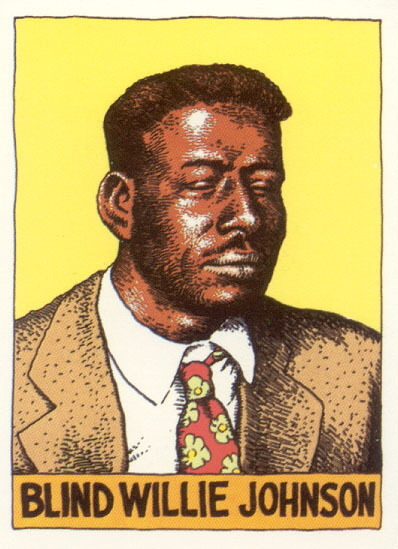
Harry Belafonte. I , as most people I know, first knew of him from the "Beetlejuice" soundtrack. But in 1956 his "Calypso" album was the first LP to sell over than a million copies. So I guess, all those suckers born back in the day knew him from that. On that album, he sang "Matilda," which is much better heard sung live than on the album because he made it a career trademark to have the audience participate in the song. He also sang "The Banana Boat Song" first on this LP. Fun fact about that song, the first time he ever sung it live on TV was on The Muppet Show, which kind of warms my heart.
Harry's music brought Caribbean music into the States to a wide audience and people began to listen to him. So he started talking. He raised funds all over the place and has been an activist in the environmental and anti-war movements ever since. And he can still sing, man. This one was drawn on the back of a receipt.

Pete Seeger. I know. I write about him too much. But he fits in here, when we're talking about influencers on rock and roll music. In 1936 he joined an arm of the US Communist Party and collected music to sing at union protests, migrant rallies and anti-war functions. He was edgy before it was cool to be edgy. He was called in front of Sen McCarthy and HUAC and blacklisted at the height of his early career. But he kept on singing. Or as he wrote to me in a postcard, kept on keepin' on.
On his banjo, which I was lucky enough to see for myself at the Rock and Roll Hall of Fame in Cleveland (I know, why the hell is it in Cleveland?), he wrote "This Machine surrounds hate and forces it to surrender." It was a response to Woody Guthrie's "This Machine Kills Fascists," which was written on his guitar. And I think these two statements really show the difference between Pete and Woody. Woody wrote something big, brash, slightly reckless and really catchy. Pete, wrote something longer, more thought out and ultimately, more easily to forget. You can hear, in all of his songs, from children's folk music to protest songs to pop covers, both honesty and true, palpable love in his voice. I drew this one on a packet of guitar strings.
I got to see him sing at President Obama's Inauguration and ended up in tears when he and Bruce Springsteen sang "This Land is Your Land." Apparently Pete insisted that they sing Woody's lesser-known third verse to the song about the evils of private ownership of land, and the more protest-ful fourth verse and the failures of government:
As I was walkin' - I saw a sign thereAnd that sign said - no tress passin'But on the other side .... it didn't say nothin!Now that side was made for you and me!...In the squares of the city -In the shadow of the steepleNear the relief office - I see my peopleAnd some are grumblin' and some are wonderin'If this land's still made for you and me.

 So
So







